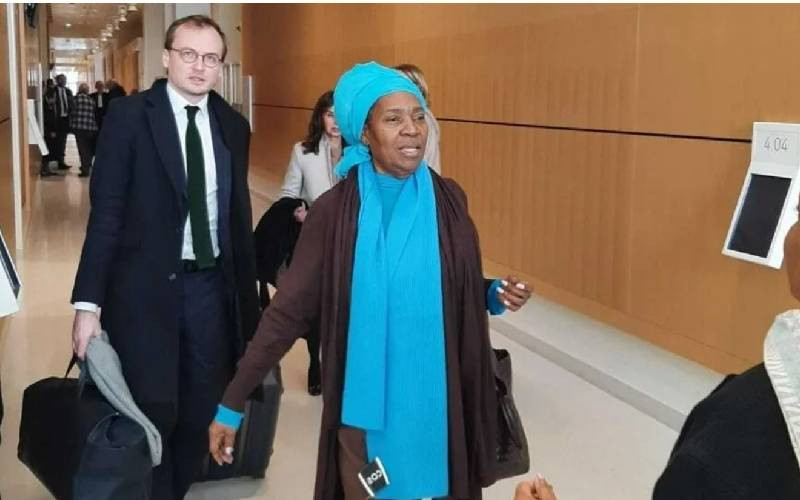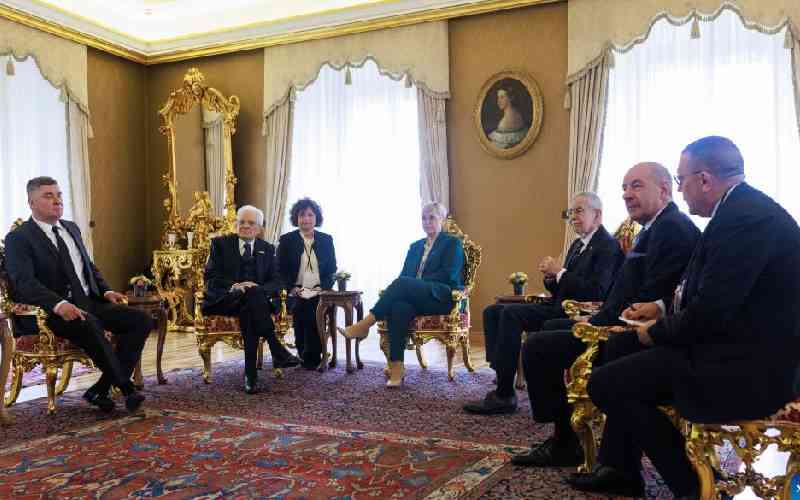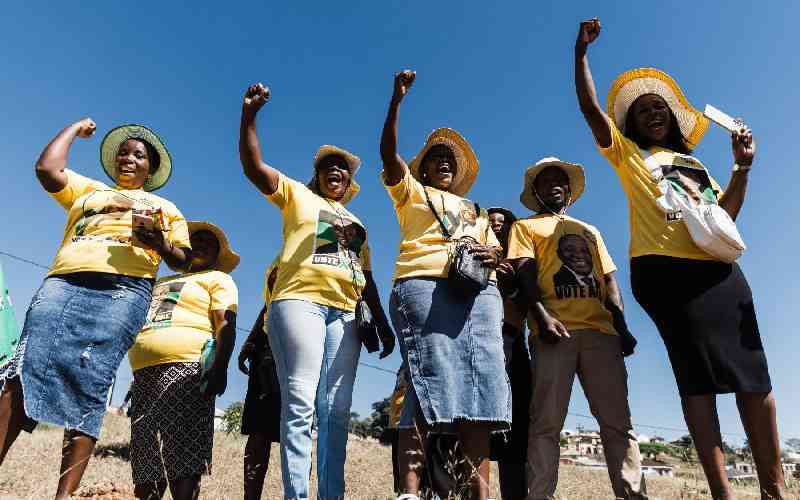 |
|
The Standard Group CEO Sam Shollei (left) and his wife Gladys share light moments with Franklin Kiprono, a Class Three pupil at Hill School during the Kass Marathon at Eldoret Club at the weekend. The boy, born without one hand, was spotted while singing gospel songs at the event. [PHOTO:PETER OCHIENG/STANDARD] |
Debate on doping came up in the IAAF Council, chaired by President Lamine Diack, during the three-day meeting in the Fairmont Hotel, Monaco, France.
The discussions came ahead of the IAAF Gala set for tonight, where world marathon record holder Dennis Kimetto is fighting tonight for the 2014 IAAF World Male Athlete of the Year award against Qatari high jumper Mutaz Essa Barshim and French pole vaulter.
At the meeting, the Doping Control Programme for 2014 released the number of tests conducted during the season. There were 1,597 in-Competition urine tests, including 668 EPO analyses. Out-of-Competition urine testing had 1,721 that included 634 EPO analyses.
TESTED POSITIVE
The pre-Competition blood tests were 612 blood for ABP purposes.
The tests came even as three-time Boston Marathon and two-time Chicago Marathon winner Rita Jeptoo tested A-sample positive for EPO in an out-of-competition test before Chicago Marathon.
In the resolutions were that the 2016 Rio Olympic Games will feature finals during the morning sessions of the athletics programme –the first time since 1988 Seoul Olympic Games.
IAAF Council approved the decision to have the finals in the morning and are yet to release a detailed competition programme.
There will be 13 finals in the mornings: the five road events (three race walks and two marathons) and also eight events in the stadium. Out of those eight in-stadia events, there will be an even split between genders as well as between track and field events. The IAAF Council have approved the Distance Medley Relay replacing the 4x1500m relay at the 2015 IAAF World Relays set for Nassau, Bahamas, next May.
And they came up for Entry Standards, which were also approved for the 2015 IAAF World Relays. Women:4 x 100m (44.00), 4x400m (3:33.50), Men: 4x100m (39.00), and 4 x 400m (3:04.10).
During the meeting, the IAAF Council also received and reviewed an application for IAAF Membership from the South Sudan Athletics Federation.
The application was judged to meet the requirements, as set out in IAAF Constitution and provisional IAAF Membership was granted to the South Sudan Athletics Federation, with full rights and obligations.
Based on the Council’s approval during the July 2014 meeting, the Council confirmed that the new name of the competition formerly known as the IAAF World Race Walking Cup will now be the IAAF World Race Walking Team Championships.
NEW SYSTEM
Since July, the IAAF has certified 29 tracks, bringing the current total number of tracks holding a Class 1 Certificate to 117 while Class 2 Certificate are 547.
Stay informed. Subscribe to our newsletter
The entry standards for the IAAF World Championships, Beijing 2015 have been reviewed by the IAAF and a new qualification system has been introduced.
The key element of the new system is that the IAAF shall establish the ideal number of athletes (and relay teams) to start in each event of the championships and shall ensure that such ideal numbers are met through a qualification system which, essentially, combines entry standards (only one standard) and invitations based on rankings.
As in the past, there are still some special qualification opportunities and it will still be possible for member federations without any qualified athletes to be represented with one unqualified athlete (subject to certain conditions). -Additional reporting by IAAF
 The Standard Group Plc is a
multi-media organization with investments in media platforms spanning newspaper
print operations, television, radio broadcasting, digital and online services. The
Standard Group is recognized as a leading multi-media house in Kenya with a key
influence in matters of national and international interest.
The Standard Group Plc is a
multi-media organization with investments in media platforms spanning newspaper
print operations, television, radio broadcasting, digital and online services. The
Standard Group is recognized as a leading multi-media house in Kenya with a key
influence in matters of national and international interest.
 The Standard Group Plc is a
multi-media organization with investments in media platforms spanning newspaper
print operations, television, radio broadcasting, digital and online services. The
Standard Group is recognized as a leading multi-media house in Kenya with a key
influence in matters of national and international interest.
The Standard Group Plc is a
multi-media organization with investments in media platforms spanning newspaper
print operations, television, radio broadcasting, digital and online services. The
Standard Group is recognized as a leading multi-media house in Kenya with a key
influence in matters of national and international interest.










